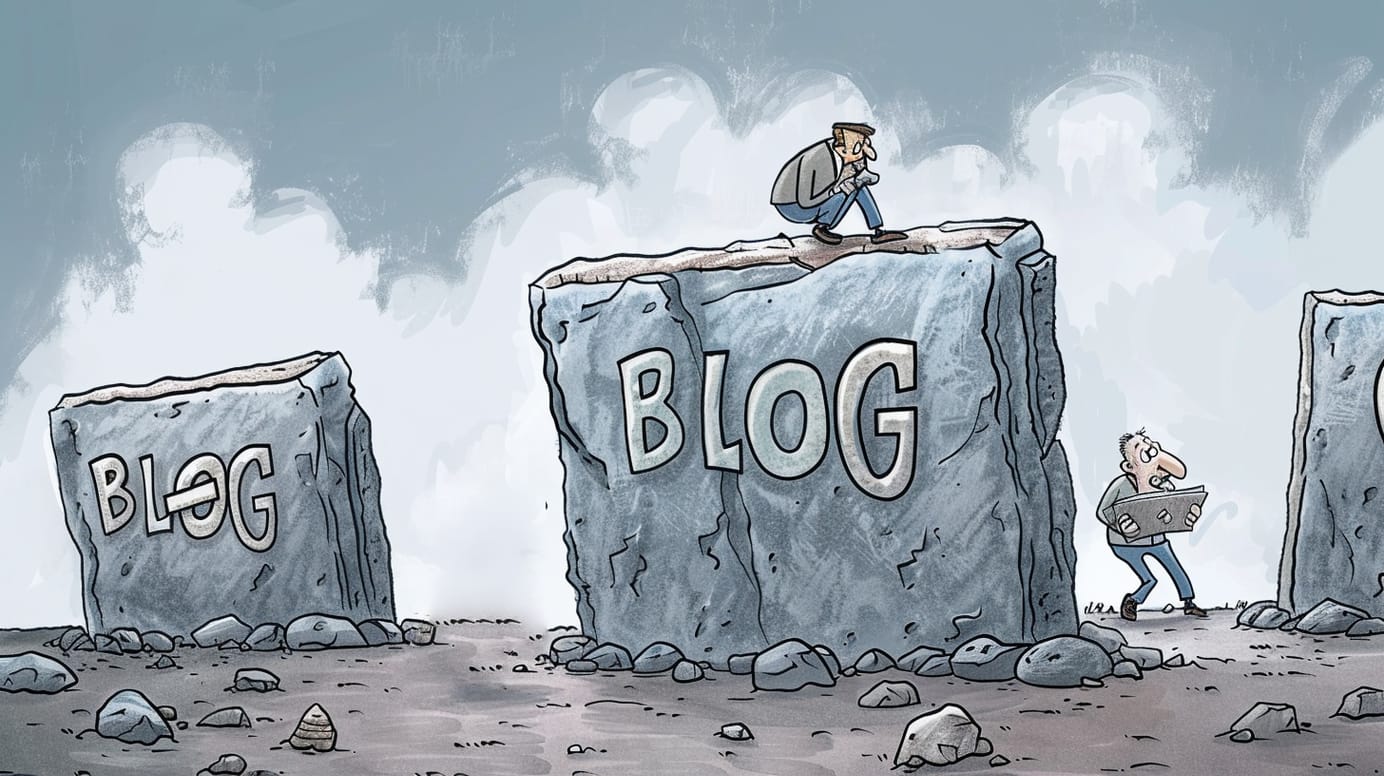
Recency is killing the web - and we'll all lose if that happens
Our obsession with organising everything around the latest content may be destroying the greatest value the web holds.
Neil Perkin on the apparent decline of blogs:
A lot of writing has moved to Medium and there's some great stuff there but there's also a lot of things written for clicks. Twitter has largely replaced a lot of the conversation and commentary that used to happen in the comments sections of blogs (commentary that was often more insightful or interesting than the original blog post) and I still get enormous value from it but there is also a lot of anger there now. The heightened emphasis everywhere on recency as an arbitor of value which perhaps means that older, more useful things get ignored.
Neil was following up Amy Hoy's post about how the blog broke the web. (A blogger responding to another blogger, triggering a third to write about both? How 2006!) Her thesis is that the time-based format of most blogs started us towards the slippery slope of real time content rather the evergreen content that dominates digital today.
Non-diarists — those folks with the old school librarian-style homepages — wanted those super-cool sidebar calendars just like the bloggers did. They were lured by the siren of easy use. So despite the fact that they weren’t writing daily diaries, they invested time and effort into migrating to this new platform.
They soon learned the chronostream was a decent servant, but a terrible master.
Of course, most blog platforms will now easily allow you to build non-chronological sites, but that's not the point. The chronological stream was so easy and rewarding to browse - "let's see what's new…" that it won. But it shouldn't have won as much as it has. There should be room for more static sites, sites organised by connections and links, not just by dates.
Recency's regretable costs
I'm not sure if it's blogging's fault, or journalism's fault or even Google's fault — but I do think the focus on recency as the biggest defining value of content is an error, and if we continue too far down that path, we'll regret it.
Let me give you an example. A friend posted some photos on Facebook of a street sign visible underneath a street in Soho, London. I'd stood above that grill many, many times, back when I used to work in Soho. I'd never noticed it. I wanted to know more.
A little bit of creative Googling brought me this:
Although Little Compton Street has its own Wikipedia page, it is not entirely clear how the signs got here. The street itself was obliterated by the construction of Charing Cross Road – here you can see Little Compton Street on an old map of 1868, intersecting with Crown Street (which is marked by green as Soho’s border, though surely red would be more appropriate) just before Cambridge Circus. Little Compton Street ceased to exist in around 1896 and is now part of the Cambridge Circus utility tunnels, which some urban explorers write about here. (Apparently, Rimbaud and Verlaine used to drink in a pub on Little Compton Street during their dramatic London stay.)
Just look at that. It's a five year old blog post, but it's rich, full of information and deeply interlinked. You can use it as a jumping off point for an exploration of all sorts of issues. It's what Wikipedia could have been before the deletionists were left to run riot over there.
It's beautiful.
If that had been a Facebook post, I'd never have found it.
This is the web at its very best - a source of information, connected with other related information. It was - and remains - one of humanity's finest inventions, in the form of making information widely available, and letting niche interests thrive.
If we cast that away on the altar of recency, engagement and monthly-active user-based startup valuations, then we have truly squandered something precious.
Sign up for e-mail updates
Join the newsletter to receive the latest posts in your inbox.










